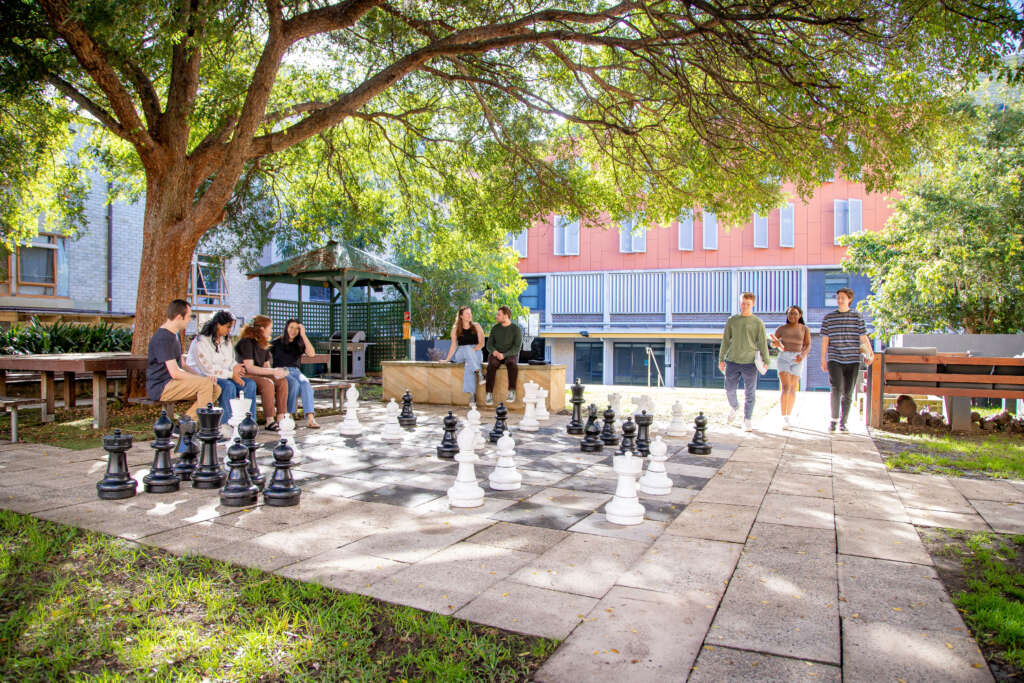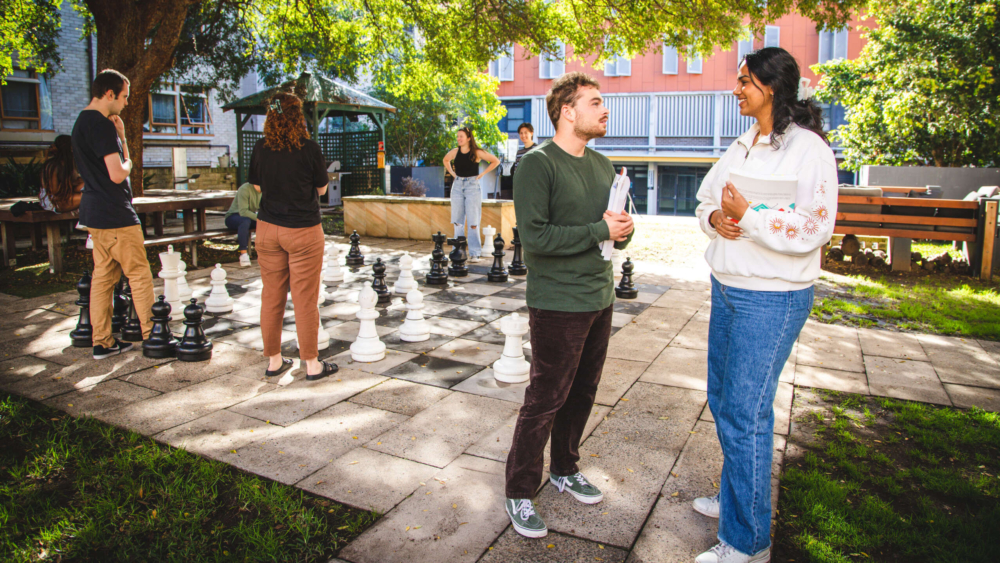In an era when echo chambers, confirmation bias and disinformation seem to have suppressed society’s ability to debate anything of substance, Robert Menzies College (RMC) is creating a space where university students can disagree, yet do so with love.
At the residential Anglican College on Sydney’s Macquarie University campus, scholar-in-residence Gordon Menzies has created a “real-about-difference but respectful” conversation space in a ‘Socratic Club’, named after a similar gathering in Oxford run for many years by C. S. Lewis.
And at the Socratic Club, even the hottest hot-button issues are up for discussion.
“The best Socratic Club was on abortion,” Menzies says.
“I got everyone to fill out a ‘pro-life’ survey and then they lined up (physically) from high score (very liberal) to low score (very conservative). Then, each student found someone at the other end of the line and tried to understand what they would have to change in their deep beliefs in order to agree with the other person.”
There followed a respectful interaction between conservatives and progressives, and men and women, he says, as they realised the critical question was, ‘What is a person?’.

But Menzies isn’t just making space for these conversations so that people can enjoy a good old-fashioned debate. This isn’t a new version of debate club or mock trial. He really does believe creating the space is kingdom work.
He believes the Socratic Club meeting on abortion was “a gospel seed” in two ways – first, because people can see the relevance of a Christian answer. Second, because they realise you need to get your fundamental beliefs right to have the right opinions.
“Christian opinions are welcome but not privileged at the Socratic Club,” says Menzies, noting that this ensures non-believers feel comfortable in the room.
In contrast to the adversarial climate many Christians operate in on the internet, Menzies advocates for discussion on big stuff by “looking under the bonnet” at people’s presuppositions and deep beliefs.
“So many internet discussions now involve talking louder and more nastily putting your foot down, rather than stopping and ‘looking under the bonnet’ at people’s presuppositions and deep beliefs,” says the author of Western Fundamentalism: Democracy, Sex and the Liberation of Man.
“It influenced me for good, opened my horizons and rounded out my university education.” – Exchange student, Cole Shultz
Cole Shultz is an exchange student from the US staying at the college who says he chose to attend Socratic Club as a way of finding community.
“I’ve been able to discuss meaningful ideas with my peers and develop deeper friendships. While we might not always (or even often) agree, the conversations we have are always what I look forward to on Monday nights.”
Developing this culture of conversation, though, didn’t begin with Menzies’ club. It has been cultivated over 50 years.
“I was studying Arts and Education at Macquarie when I heard about RMC,” says Ian Argall, who became a resident in 1973. “I enrolled because it seemed exciting to be part of something that was brand new.
“Life was exciting with people from everywhere. It felt like a real United Nations,” he says. “We had country students and people from Samoa, Uganda, Malaysia, Indonesia, India, Fiji and more.”

Robert Menzies College
Argall even met his lifelong best friend in another resident.
“It influenced me for good, opened my horizons and rounded out my university education. I don’t think I did very well in my courses; I was having too much fun,” he says.
These days, racially diverse communities aren’t as ground-breaking as they were in Argall’s time, but there’s still plenty of opportunity for differences to divide. Consequently, the college works hard to make a space for people with political, religious, gender and neurodiversity to relate – and disagree – in healthy ways.
“If there is anywhere in a society where the really hard issues can be discussed, it should be university,” says Peter Davis, Master of RMC.
“Tolerance and respect don’t mean much unless they are applied to the people you disagree with the most, and so we want to build strong relationships, living together well, that can handle talking about the big stuff.”
“There’s something lovely about knowing you disagree and knowing you’re different and that you’re still accepted and loved for who you are.” – Dean of Students, Becky Lui
Living alongside people you disagree with might seem exhausting to some. After all, it is the exact opposite of the online echo chambers many people gravitate to. Can it really be a positive experience? Becky Lui, Dean of Students, insists it can.
“There’s something lovely about knowing you disagree and knowing you’re different and that you’re still accepted and loved for who you are,” she says.
Furthermore, she says, it’s biblical.
“The Bible provides that basis for inspiring people to deep compassion and radical love for your neighbour. We are nurturing future solution-builders and changemakers and we can equip them with a coherent framework that leaves room for individual conscience, and space to explore their spiritual beliefs openly,” she says.
Unconditional love may be a concept that gets plenty of play inside churches, but it gets significantly less play when talking about disagreement and diverse opinions. Yet Lui considers it a foundational aspect of her job.
“The Christian worldview gives a clear, considered and consistent basis on which to embrace diversity with unconditional love and acceptance,” she says. “As a Christian organisation with Christian staff, we can uniquely point our students to Jesus in the way we love them: ‘We love because he first loved us’ (1 John 4:19).”



